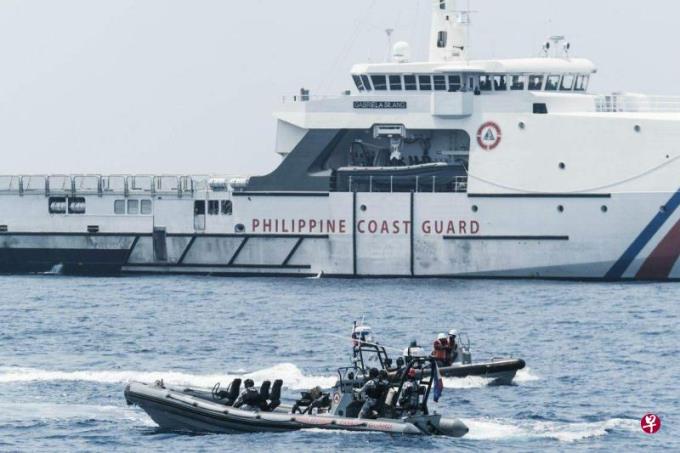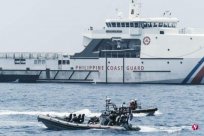
(Tokyo Composite Electric) in the United States, Japan, and the Philippines' national security consultants on Friday (June 16) in the first meeting, they agreed to strengthen the defense cooperation of the three countries.
U.S. National Security Consultant Sarawan, Japanese National Security Director Akiya Gangnan, and Philippine National Security Consultant Ano discussed security challenges including the South China Sea, East China and North Korea, to discuss and expand.United maritime activities, including the holding of multilateral joint naval exercises in the Indo -Pacific region, reiterated the importance of peace and stability in the Taiwan Strait.
Shalin said after the meeting that the three parties "focused their attention on the turbulent safe environment."
At present, the US Secretary of State Brosakin is ready to visit China to stabilize the relationship between the two major economies of the world.Japan and the Philippines are all allies in the United States. The Philippines is working hard to reconcile economic relations and territorial disputes with China, as well as loyalty to the United States as a military allies.
The relationship between the Philippines has also been contradictory in recent months.On the one hand, the Philippine President President President President President President President seeks to heating up with China, while strengthening the Philippine Defense Alliance; on the other hand, Manila has recently protested that Beijing's activities in the sovereignty of the South China Sea, but also seeking development of energy exploration and cooperationEssence
Reuters quoted three Japanese government officials involved in the national security strategic planning report that Japan was accepting the US proposal to provide military assistance such as radar systems to the Philippines to enhance Manila's military backup capabilities, strengthen Taiwan and the Philippines South ChinaThe safety of China's sea waterway.
Kono Kojun, the head of the Japanese retired Navy and the former Self -Defense Forces, said: "It is very useful to provide radar to the Philippines because it means that we can share information about the Basilica Strait."
The Basilica Strait is a waterway between the Philippines and Taiwan. It is considered to be the throat road between the Western Pacific and the South China Sea.
However, one of the Japanese officials said that the work of helping the Philippines was an initiative of Japan and not required by the United States.
The weak link of Ri Shi Fei as the first island chain
Reuters' analysis reports that the first island chain extending from Japan to Indonesia is an important route for ships to enter and exit the Pacific.Japan regards the Philippines as the weak link in the first island chain. The Japanese military is concerned that the unification of the military in mainland China may cause a wider conflict, so it is planning to formulate the Philippine military assistance plan.
A spokesman for the Japanese Ministry of Foreign Affairs said in an inquiry: "We are choosing equipment that can be used for maritime monitoring and safety, but we still don't know which equipment will choose."
Kono Kejun said that Japan's military assistance to the Philippines will gradually expand, hoping to include fatal weapons such as anti -ship missiles.
However, Japan will be limited by its own set of fatal weapons exporting.
Day officials: Fei should let the Self -Defense Force use military base
Kono Kejun and the above -mentioned Japanese officials predict that Manila will allow the Japanese Self -Defense Force to use military bases, just like the right to use the U.S. open base, and allows the Self -Defense Forces to patrol the South China Sea.
In February of this year, Japanese Prime Minister Kishita Kishita and Markis promised that Japan would provide 600 billion yen (about S $ 5.69 million) development assistance and private investment.In March, Japan observed the United States and Philippines' joint military exercises; early June, the coast Guard of the United States and Japan held joint training for the first time.
Analysts and experts point out that these actions may be a precursor of the reciprative access agreement signed a reciprocal access agreement.The mutual enrollment agreement allows the two countries to dispatch the army with each other.Three Japanese officials said that if Manila accepts conditions, Japan -Philippine may sign the agreement within one year.


